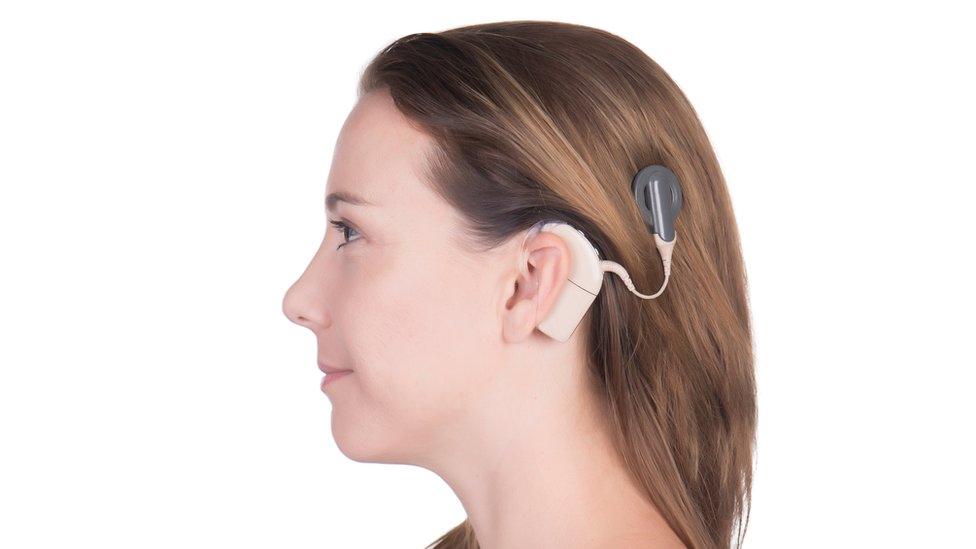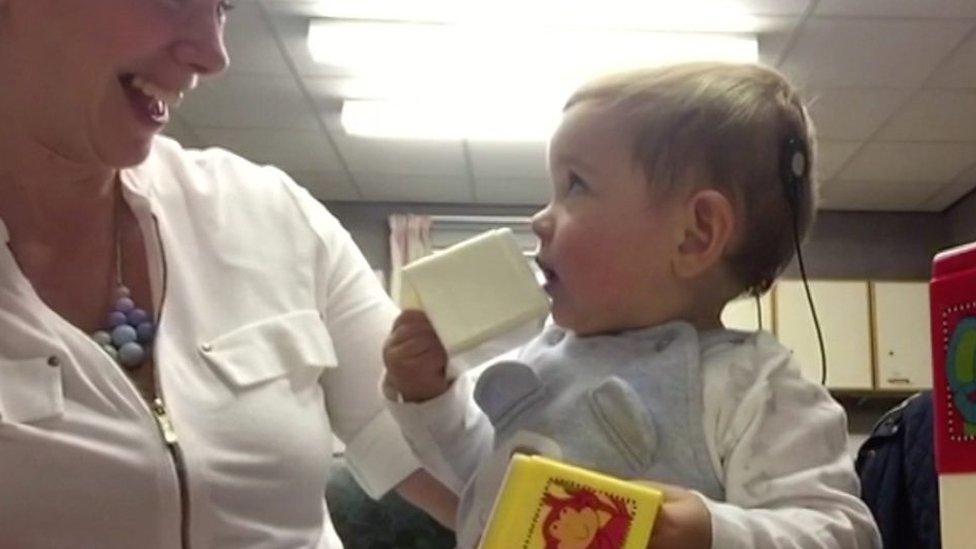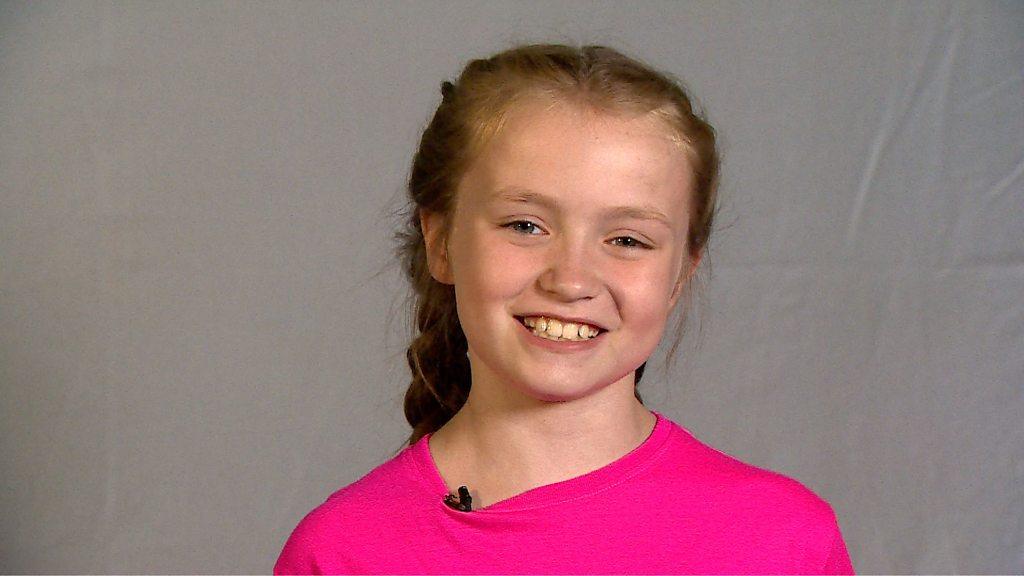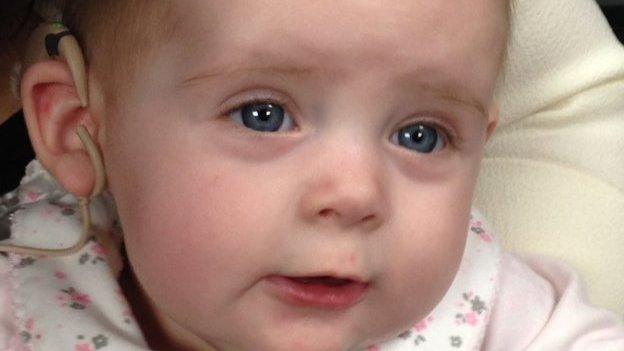Cochlear implants to benefit more people with hearing loss
- Published

Cochlear implants work by turning sound into electrical signals and sending them to the inner ear
Hundreds more children and adults with severe to profound hearing loss will be given the option of having cochlear implants, under new guidance.
It comes as the NHS watchdog NICE revised its definition of severe deafness - extending the number of people who could benefit.
Charities welcomed the move, suggesting previous guidance had been among "the strictest in the developed world".
The guidance applies to England and Wales.
The National Institute of Health and Clinical Excellence estimates that 2,150 people in England will be eligible for cochlear implants each year by 2025, an increase from the 1,260 people who currently receive them.
Cochlear implants are an option for children and adults with permanent hearing loss that is not helped by hearing aids.
Unlike hearing aids, which make sounds louder, cochlear implants work by turning sound into electrical signals and sending them to part of the inner ear called the cochlea.
From here, the signals travel to the brain and are experienced as sound.
They provide the sensation of hearing but do not restore hearing.
Transformative treatment
The total cost of a cochlear implant for one ear, including the surgery, is £22,919 and for two ears, it is £37,904.
Dr Roger Wicks, director of policy and campaigns at Action on Hearing Loss, said he welcomed the guidance changes.
"Currently, just 5% of adults who could benefit from cochlear implants receive one. This is, in part, because the way people's hearing function is currently assessed doesn't reflect how speech is understood or heard in real life.
"Adults in England also need to have near-profound deafness to qualify currently, when research shows that cochlear implants may benefit people with lower levels of hearing loss."
He added: ''This has meant that many people have actually had to wait for their hearing to get worse before they can have access to this transformative treatment.''
- Published3 September 2018

- Published2 August 2017

- Published8 April 2014
